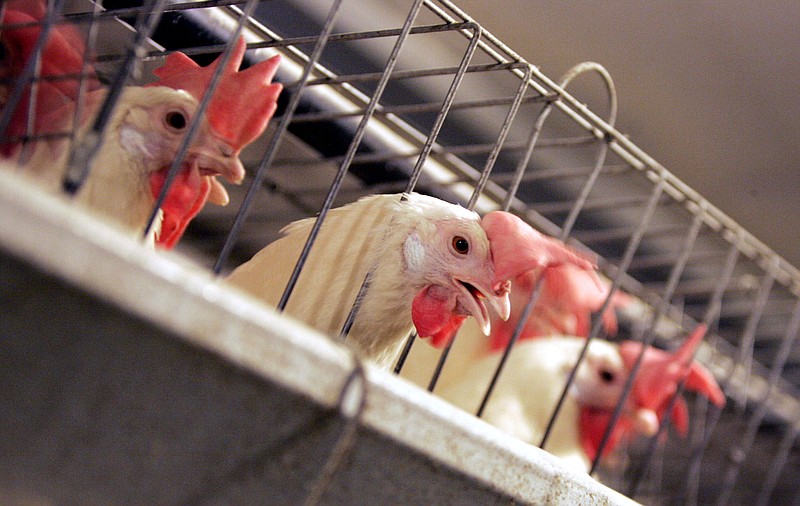It's the most potentest (sic) stuff I've ever seen. It builds for a year. And it marinates in that house.
The Dalton-Whitfield Planning Commission had to listen to chicken poop arguments Monday night.
Hoping to build two houses for 20,000 poultry, John Ridley asked to change his 27-acre Ridge Road property located along a rural stretch of Whitfield County east of Dalton from residential to agricultural zoning. But several neighbors resisted the change during a planning meeting.
Their reason? They think the chicken poop is going to be unbearable.
"It's the most potentest (sic) stuff I've ever seen," Troy Overby said. "It builds for a year. And it marinates in that house."
The planning commission sided with the neighbors, saying the zoning should remain the same. But their call isn't the final one. That belongs to the Whitfield County Commission, which will meet on Feb. 13, giving Ridley hope.
It's not me moving to the city to build chicken houses. They're coming here to the country but still wanting to live a city life. They'll line up outside a Chick-fil-A, but nobody wants to see a chicken house.
For the next two and a half weeks, he plans to do his homework, tighten his argument and present a strong case for why he has the right to bring the chickens and their accompanying odor to the community. Neighbors won't smell the poop that much, he said, because of advancements in the art of poultry farming.
He wants to build houses with big fans that pull cold water through the air. The ventilation will calm the smells, a bit. On a windy day, he said, faint fecal wafts may flow to a neighbor's house. But this is the country: You have to expect at least a little bit of poop.
Ridley's family has farmed the area for five generations. At one time, he said, three families controlled all the land out here. But little by little, farmers and their families carved swaths of land into smaller pieces of property. And outsiders came here.
When Ridley bought this particular land for his potential poultry farm, he figured it was zoned for agriculture. A farm had been here for at least 50 years.
"It's not me moving to the city to build chicken houses," he said Tuesday. "They're coming here to the country but still wanting to live a city life. They'll line up outside a Chick-fil-A, but nobody wants to see a chicken house."
During Monday's meeting, neighbors said the smell would decrease property values. Debra Smith said her 82-year-old father can't leave his house. He'll be stuck with the stench all day.
"He will have more difficulty breathing," she said.
At one point during Monday's meeting, Ridley's mother came to her son's defense. She said that she, her grandfather, her father and her son were all raised within a one-mile radius of the current property. They work hard and farm well, and people should let him pursue his dream in the chicken business.
"We've raised a good, Christian man," she said. "He's trying to make a good living. This may not be what all of these people want. But he's trying.... He purchased that land under the proper - what he thought - zoning."
Some neighbors complained the property will bring semitrailers down their country road. And they're concerned about the environment, wondering whether the chicken poop and chicken carcasses and rotten eggs will flow to the Conasauga River.
Ridley said these, too, are not legitimate concerns. He said semitrailers already rumbled down the road every day. And the state environmental group monitors farms, making sure the workers don't break any rules.
"This stuff is regulated," he said. "This ain't one of them deals I can do myself. I can't throw the stuff in the creek."
Contact Staff Writer Tyler Jett at 423-757-6476 or tjett@timesfreepress.com. Follow him on Twitter @LetsJett.
